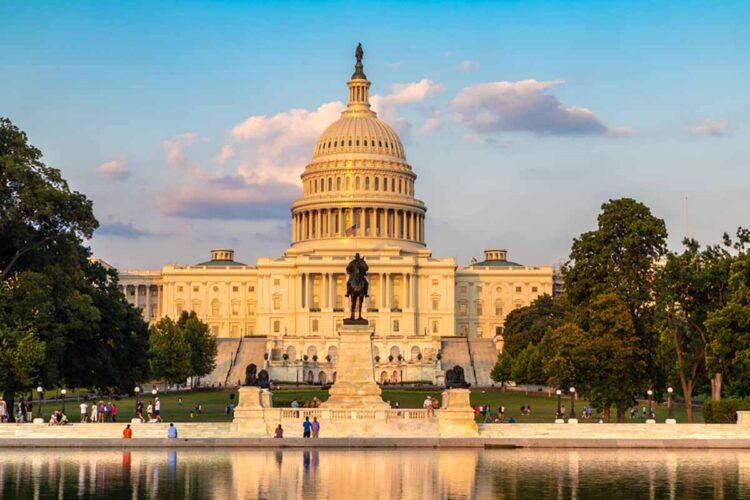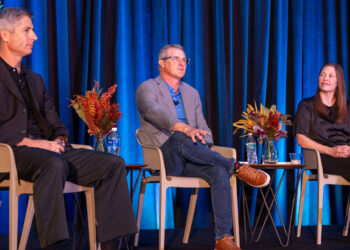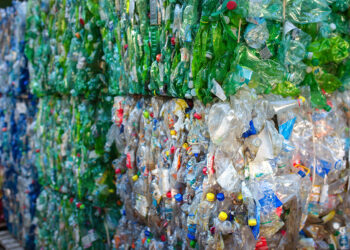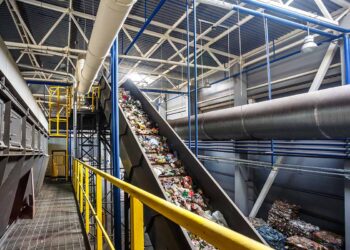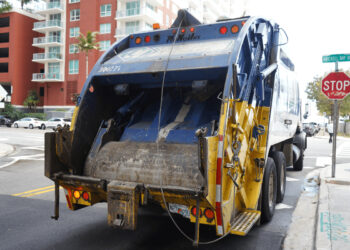Members of the U.S. Senate Committee on Environment and Public Works committee asked questions about grants, private funding, support for rural communities and diverting food scraps during a May 22 hearing on local efforts to improve reuse and recycling.
The committee, chaired by Sen. Tom Carper, a Delaware Democrat, brought Elizabeth Biser, the secretary of the North Carolina Department of Environmental Quality; Susan Fife-Ferris, the director of solid waste planning and program management for Seattle Public Utilities; and Cody Marshall, chief system optimization officer at the The Recycling Partnership, together on a panel to give testimony and answer questions.
Carper opened the hearing by noting that he believes “we have an opportunity to clean up our communities, an opportunity to support jobs and economic growth and protect our planet by actively supporting recycling and reuse as ways to reduce waste in our economy.”
Ranking committee member Sen. Shelley Moore Capito, a West Virginia Republican, added that the goal of the hearing was to help determine what, if any, role the federal government should play in improving recycling and reuse.
“Federal policy solutions should supplement, not replace or override, state, local and private initiatives and programs,” she said.
She highlighted better labeling and more federal grants as possible areas for federal involvement but added that “grants should be used to attract – and not replace – private sector investment into recycling infrastructure.”
Sharing her experience in North Carolina, Biser said the Solid Waste Infrastructure for Recycling Grant Program has helped many states gather better data, which is often lacking. North Carolina is using its grant funding for a statewide optimization study.
“Having the ability to invest in data, which is not something we often have, is going to be really critical, not just for my state but for other states,” she said, especially “understanding what is in the waste stream, understanding where material is being generated and where the infrastructure to collect that material is lacking.”
Fife-Ferris and Marshall urged the Senate to work to extend SWIFR funding, as well as the other funding mechanisms such as the Consumer Recycling Education and Outreach grant program, beyond the current end date of 2026.
“The federal government can also play a critical role by supporting consistent and accurate data collection at the national level and using this data to drive effective planning, policy, programs and investments in the solid waste field,” Fife-Ferris said.
Marshall added that “grants have impact long beyond their initial phase.”
When asked for examples, Biser noted that North Carolina granted Clear Path Recycling $140,000 over three cycles in state funding, and it then attracted $1.7 million in private investment.
“It’s a good example of if we had more to invest, the experience we could have,” she said. “A healthy economy and a healthy environment go hand in hand.”
Marshall said the The Recycling Partnership has dispersed over $200 million in private funding and is “a great example of how the private sector is stepping up.”
He noted that more grant writing support for under-experienced or under-resourced communities would be helpful, as would a national extended producer responsibility for packaging framework.
National EPR, national labeling standards, and incentives for designing for recyclability were also on Fife-Ferris’ wish list.
“Our city still faces challenges and has limited control or influence over the large and complex solid waste system, and this is why leadership at the national level is so important,” she said.
She also spoke about Seattle’s successful scale-up of reusable container programs, which has now diverted over 1 million single-use items. Seattle started by getting reusable packaging stakeholders together, which attracted the interest of reusable container companies, she said. The programs were then rolled out at sport arenas, festivals and music venues.
“We just made connections,” Fife-Ferris said. The city is not continually funding the work but rather provides a place for stakeholders to come together and technical expertise, such as helping to site a wash system.
“Our vision is this goes citywide,” she said.







